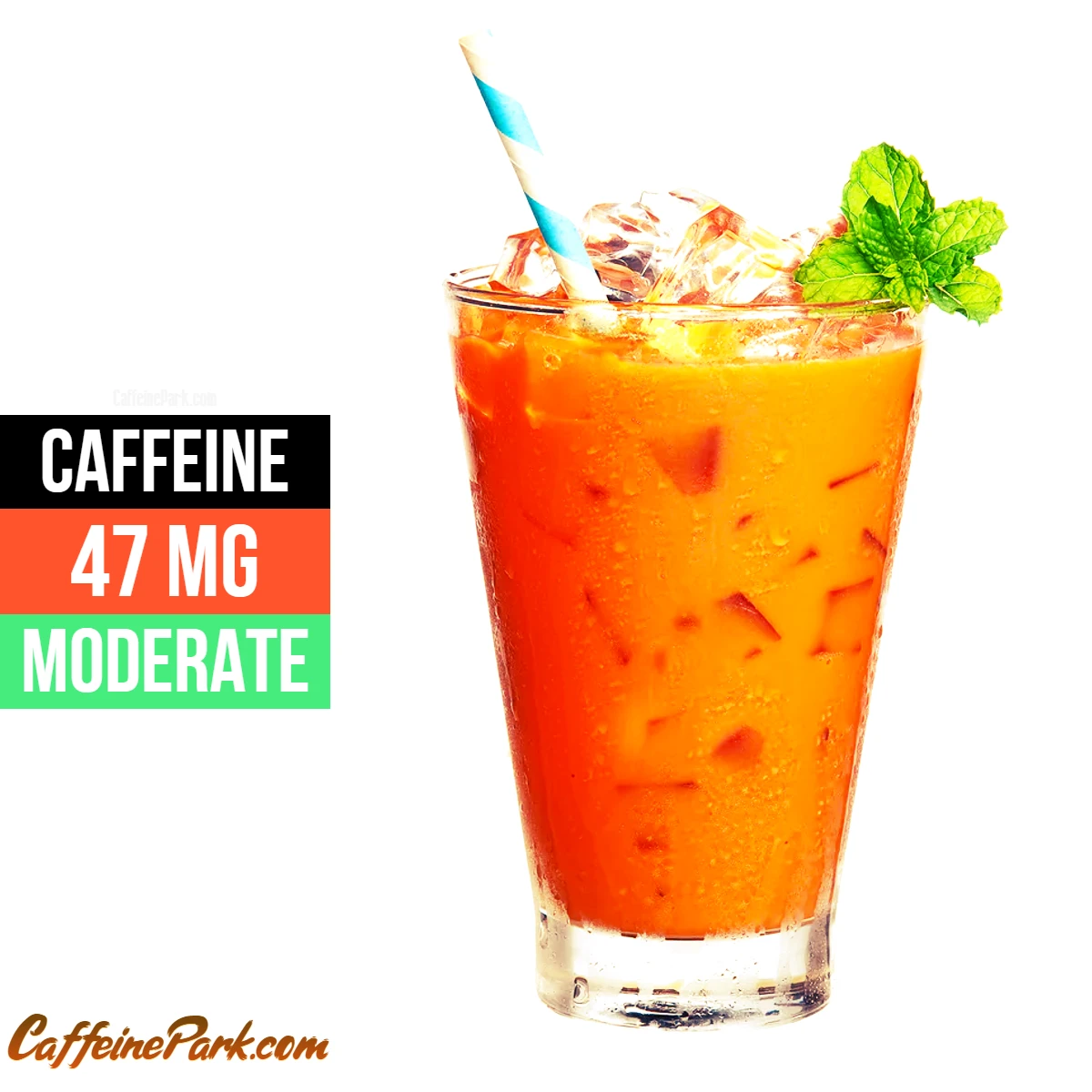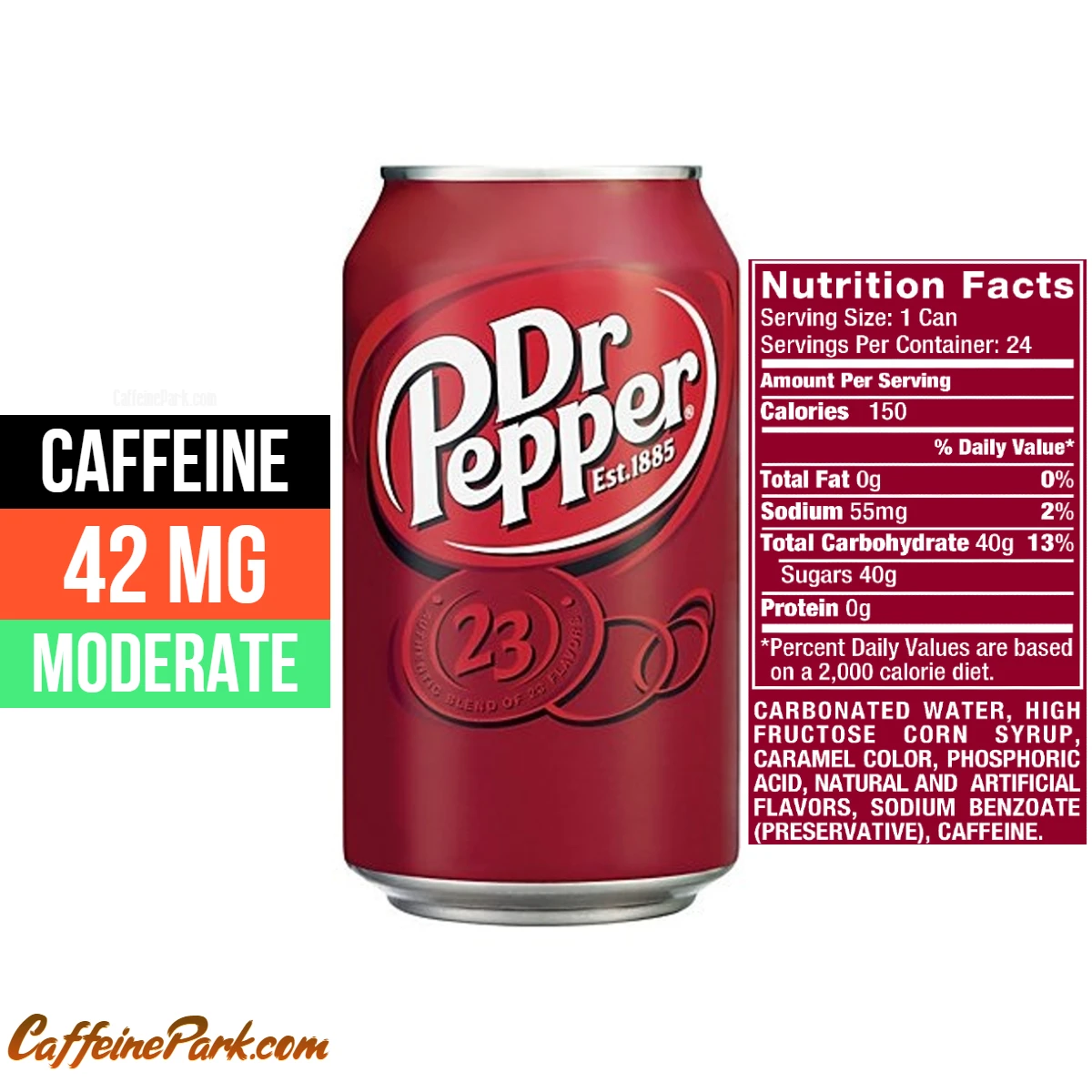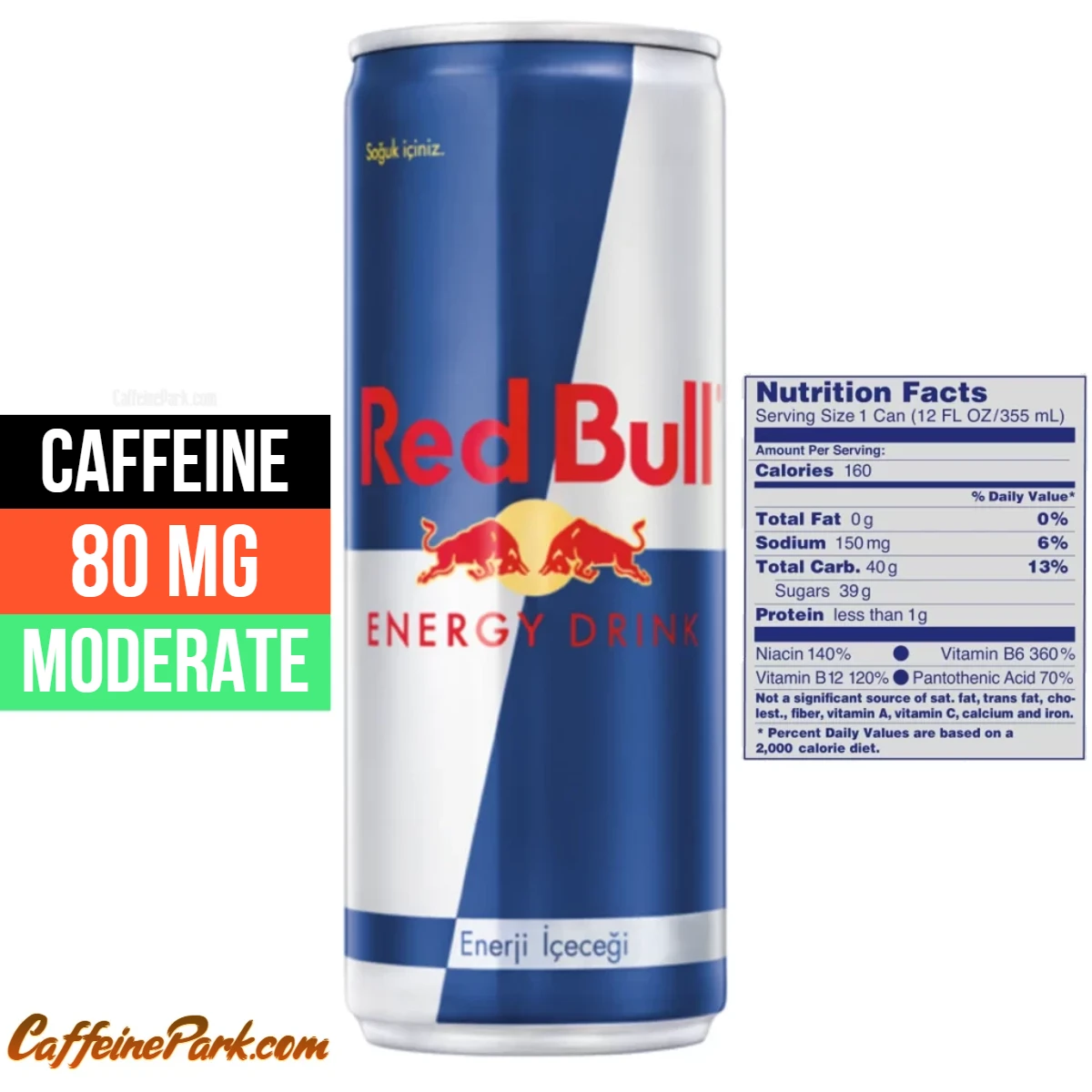
Thai tea is a sweet and fragrant tea beverage that has a long and rich history in Thailand. It is made with a blend of black tea, spices, and sweetened condensed milk and is often served ice cold. There are many variations of Thai tea that incorporate different ingredients and flavors, and it is a popular choice for those looking to experience the flavors of Thailand. Whether enjoyed at a local market or at a special occasion, Thai tea is a refreshing and delicious choice for any tea lover.
The caffeine content of Thai tea can vary depending on the type of tea used and the brewing method. Black tea, which is the main ingredient in traditional Thai tea, typically contains 47 mg of caffeine per 8-ounce serving.
However, the caffeine content of Thai tea may be lower due to the fact that it is often served with sweetened condensed milk, which can dilute the caffeine content of the tea. Additionally, the spices and other ingredients used in Thai tea may also affect the caffeine content of the beverage.
If you are sensitive to caffeine or are trying to limit your caffeine intake, it is important to keep in mind that Thai tea can still contain caffeine and to consume it in moderation. It is always a good idea to speak with a healthcare professional if you have any concerns about caffeine and its effects on your health.
Does Thai tea have Caffeine?
Yes, Thai tea contains 47 mg of caffeine per 8 fl oz cup which is a moderate amount of caffeine. It is kept in mind that the caffeine content of Thai tea can vary depending on the type of tea used and the brewing method, so it is always a good idea to check the ingredient list of any pre-made Thai tea mix or concentrate to determine the exact caffeine content.
| Serving size | Caffeine Amount | Caffeine strength |
|---|---|---|
| 100ml | 20 mg | LOW |
| 8 fl oz | 47 mg | MODERATE |
- Caffeine Amount: 47 mg
- Caffeine strength: MODERATE
- Calories: 321
- Serving size: 8 fl oz
- Sugar: 54g
Compare Caffeine in Thai tea vs coffee
When comparing the caffeine content in Thai tea and coffee, it’s important to note that the caffeine levels can vary based on factors such as the brewing method, serving size, and specific type or brand of tea or coffee. However, as a general guideline, let’s explore the differences:
- Caffeine Content: On average, an 8 fl oz cup of Thai tea contains approximately 47mg of caffeine. In contrast, an 8 fl oz cup of coffee typically contains around 95mg of caffeine. This means that coffee generally has a higher caffeine content compared to Thai tea.
- Taste and Flavor: Thai tea is known for its unique blend of flavors, combining black tea, spices, and sweetened condensed milk. It offers a rich and creamy taste with hints of vanilla and various spices. Coffee, on the other hand, has a distinct and robust flavor profile that can vary depending on the roast and type of coffee beans used.
- Brewing Methods: Thai tea is often prepared using a combination of black tea leaves, spices (such as star anise and cardamom), sugar, and sometimes condensed milk. It is commonly brewed as a concentrate and then mixed with water or milk. Coffee, on the other hand, can be prepared using various methods, including drip brewing, espresso, French press, or cold brew.
- Cultural Significance: Thai tea is deeply rooted in Thai culture and is a popular beverage enjoyed both at home and in restaurants or tea stalls. It is often served over ice, making it a refreshing choice in hot weather. Coffee, on the other hand, has a global presence and is deeply ingrained in many cultures around the world. It is enjoyed in various forms, such as espressos, cappuccinos, lattes, and more.
Compare Caffeine in Thai tea vs other
| ITEMS | SERVING SIZE | CAFFEINE |
|---|---|---|
| Thai tea | 8 fl oz | 47mg |
| Matcha Tea | 8 fl oz | 64mg |
| PG Tips Black Tea | 6.78 fl oz | 50mg |
| Black Tea | 8 fl oz | 42mg |
| Lipton Tea | 8 fl oz | 55mg |
| Fast Lane Black Tea | 8 fl oz | 110mg |
| Teavana Tea | 8 fl oz | 41mg |
| Guayusa Tea | 8 fl oz | 41mg |
Review
Thai tea, also known as Cha Thai, is a sweet and fragrant tea beverage that originated in Thailand. It is typically made with a blend of black tea, spices, and sweetened condensed milk, and is often served ice cold.
History
Thai tea has a long and rich history that dates back to the early 20th century when it was first introduced to Thailand by Chinese immigrants. The tea quickly gained popularity in Thailand and became a staple at local markets and street stalls. Today, Thai tea is enjoyed by people all over the world and is often served at Thai restaurants and cafes.
Ingredients and Preparation
The main ingredient in Thai tea is black tea, which is typically brewed with a blend of spices such as star anise, cinnamon, and vanilla. Once the tea is brewed, it is combined with sweetened condensed milk and poured over ice to create a refreshing and sweet beverage.
Some variations of Thai tea may also include additional ingredients such as rose water, pandan leaves, and coconut milk. The tea is typically served in a tall glass with a layer of frothed milk on top and is often garnished with a sprig of fresh mint or a slice of orange.
Taste
Thai tea is a sweet and fragrant tea beverage with a unique and complex flavor. The taste of Thai tea is influenced by the blend of black tea and spices used to make the tea, as well as the addition of sweetened condensed milk.
Traditionally, Thai tea is made with a blend of black tea, spices such as star anise, cinnamon, and vanilla, and sweetened condensed milk. The black tea provides a bold and robust flavor, while the spices add warmth and depth. The sweetened condensed milk gives the tea a creamy, rich texture and a sweet, indulgent flavor.
Overall, the flavor of Thai tea is sweet, rich, and aromatic, and is often described as a blend of bold black tea and sweet, creamy milk. The tea is often served ice cold, which helps to refresh and invigorate the palate.
In addition to the traditional flavor of Thai tea, there are also many variations of the drink that incorporate different ingredients and flavors. For example, green Thai tea is made with green tea leaves and has a lighter, more subtle flavor, while Thai milk tea is made with a combination of black tea and full-fat cow’s milk and has a creamy, rich flavor.
Caffeine content
Here is a list of caffeine content for some popular flavors of Thai tea, along with the serving size:
- Black Thai tea (8 ounces): 30-60 mg
- Green Thai tea (8 ounces): 15-30 mg
- Thai milk tea (8 ounces): 30-60 mg
- Thai iced tea latte (8 ounces): 30-60 mg
Please note that these caffeine estimates are based on the average caffeine content for the respective tea types and may vary depending on the specific blend and brewing method used. It is always a good idea to speak with a healthcare professional if you have any concerns about caffeine and its effects on your health.
Health Benefits
Like all teas, Thai tea is a rich source of antioxidants and has a number of potential health benefits. The black tea used in Thai tea has been shown to improve heart health, reduce the risk of stroke, and lower blood pressure. The spices used in the tea may also have anti-inflammatory and immune-boosting effects.
Cultural Significance
In addition to its refreshing flavor and potential health benefits, Thai tea also holds cultural significance in Thailand. The tea is often served on special occasions and is a popular choice for guests at Thai weddings. It is also a common sight at local markets and street stalls, where it is served to both locals and tourists alike.
Variations of Thai Tea
While traditional Thai tea is made with black tea, spices, and sweetened condensed milk, there are also many variations of the drink that incorporate different ingredients and flavors. Some popular variations include:
Green Thai Tea
Green Thai tea is made with green tea leaves instead of black tea and is often served without sweetened condensed milk. It is typically less sweet than traditional Thai tea and has a lighter, more subtle flavor.
Thai Milk Tea
Thai milk tea, also known as “cha-yen,” is made with a combination of black tea and full-fat cow’s milk. It is often sweeter than traditional Thai tea and has a creamy, rich flavor.
Thai Iced Tea Latte
A Thai iced tea latte is made with black tea, sweetened condensed milk, and steamed milk, and is typically served in a tall glass with a layer of frothed milk on top. It has a creamy, rich flavor and a smooth, velvety texture.
Serving Thai Tea
Thai tea is traditionally served ice cold and is often garnished with a sprig of fresh mint or a slice of orange. It can be enjoyed on its own or as an accompaniment to a meal. Thai tea is often served at Thai restaurants and cafes, but it can also be made at home with a blend of black tea, spices, and sweetened condensed milk.
Popularity Around the World
Thai tea has gained popularity around the world and can be found in Thai restaurants and cafes in many countries. It is often served as a refreshing and sweet beverage and is a popular choice for those looking to experience the flavors of Thailand. Thai tea has also inspired a variety of products such as ice cream, cookies, and bubble tea, which have gained popularity in their own right.
FAQs
Yes, Thai tea does contain caffeine, although the amount can vary.
On average, Thai tea contains approximately 47mg of caffeine per 8 fl oz cup. However, it’s important to note that the caffeine content can vary depending on factors such as the brand and brewing method.
No, Thai tea generally contains less caffeine than coffee. While a cup of coffee typically contains around 95mg of caffeine per 8 fl oz, Thai tea offers a milder caffeine boost with an average of 47mg per cup.
If you are sensitive to caffeine or prefer to limit your caffeine intake, you may want to consume Thai tea in moderation or explore caffeine-free alternatives such as herbal teas.
Yes, the caffeine content in Thai tea can vary among different brands and even within homemade preparations. It’s advisable to check the specific product or inquire about the brewing process if you are concerned about the caffeine content.
Traditional Thai tea recipes typically include black tea, which naturally contains caffeine. However, some establishments or brands may offer caffeine-free or decaffeinated versions of Thai tea. It’s best to check with the specific vendor or read the product labels for more information.
Since Thai tea does contain caffeine, it’s recommended to consume it earlier in the day if you are sensitive to caffeine or if consuming it in the evening may interfere with your sleep.
Thai tea, like other teas, contains antioxidants and can be enjoyed as part of a balanced diet. However, it’s important to be mindful of the overall caffeine intake and consider any potential sensitivities or health conditions.
Yes, you can control the strength of your Thai tea by adjusting the brewing time or using less tea leaves. If you prefer a milder caffeine content, you can experiment with brewing methods to find the right balance for your preferences.
Is Thai tea sweet?
Yes, Thai tea is typically quite sweet due to the addition of sweetened condensed milk. The sweetness of the tea can vary depending on the amount of sweetened condensed milk used and personal preference.
Is Thai tea caffeinated?
Yes, Thai tea is caffeinated as it is made with black tea, which contains caffeine. The caffeine content of Thai tea can vary depending on the type of tea used and the brewing method, but it is generally around 30-60 mg per 8-ounce serving.
Can Thai tea be made without sweetened condensed milk?
Yes, Thai tea can be made without sweetened condensed milk. Some people prefer to make the tea with unsweetened dairy milk or a non-dairy milk alternative such as almond milk or coconut milk. Alternatively, the tea can also be made without any milk at all and sweetened with sugar or honey to taste.
Can Thai tea be made with loose-leaf tea?
Yes, Thai tea can be made with loose-leaf tea instead of tea bags. To make the tea, simply steep the loose-leaf tea in hot water with the spices and sweetened condensed milk, and then strain the tea before serving.
Can Thai tea be made hot?
Yes, Thai tea can be made hot and served as a warm beverage. To make hot Thai tea, simply omit the ice and serve the tea warm in a mug or teapot.
Can Thai tea be made at home?
Yes, Thai tea can be easily made at home with a blend of black tea, spices, and sweetened condensed milk. To make the tea, simply brew the black tea with the spices, mix in the sweetened condensed milk, and serve the tea over ice. Alternatively, Thai tea mix can also be purchased at many Asian markets or online and used to make the tea at home.
Is Thai tea vegan?
Traditional Thai tea is not vegan as it is made with sweetened condensed milk, which is derived from cow’s milk. However, vegan versions of Thai tea can be made by using a non-dairy milk alternative such as almond milk or coconut milk in place of sweetened condensed milk.
Is Thai tea gluten-free?
Thai tea is generally considered to be gluten-free, as it is made with black tea and spices and does not contain any gluten-containing ingredients. However, it is always a good idea to check the label or ingredient list of any pre-made Thai tea mix or concentrate to ensure that it is gluten-free.
Can Thai tea be made with green tea?
Yes, Thai tea can be made with green tea leaves instead of black tea. This variation of the tea is known as green Thai tea and has a lighter, more subtle flavor than traditional Thai tea.
Is Thai tea the same as bubble tea?
No, Thai tea and bubble tea are not the same things. While both drinks are popular in Asia and contain tea, bubble tea is typically made with a base of sweetened milk or fruit-flavored tea and is served with tapioca balls or “bubbles” at the bottom of the cup. Thai tea, on the other hand, is a sweet and fragrant tea beverage made with black tea, spices, and sweetened condensed milk and is typically served ice cold.
Can Thai tea be made with tea bags?
Yes, Thai tea can be made with tea bags instead of loose-leaf tea. To make the tea, simply brew the tea bags in hot water with the spices and sweetened condensed milk, and then strain the tea before serving.
Can Thai tea be made with black tea bags?
Yes, Thai tea can be made with black tea bags. To make the tea, simply brew the black tea bags in hot water with the spices and sweetened condensed milk, and then strain the tea before serving.
Can Thai tea be made with herbal tea?
Technically, Thai tea can be made with any type of tea, including herbal tea. However, the flavor of the tea will be different depending on the type of tea used. For example, using an herbal tea such as chamomile or mint will result in a sweeter and more aromatic Thai tea, while using black tea will result in a bolder and more robust flavor.
Compare caffeine in Thai tea vs iced coffee
Although a sweet iced coffee looks similar to Thai Ice Tea and is prepared similarly, the flavor and caffeine levels are drastically different. If your Iced Coffee is made with 2 Espresso Shots (2 oz), it will contain up to 128mg of Caffeine! If you use Ordinary Brewed Coffee, your drink will contain 95 mg of Caffeine per 8 fl oz of Coffee. But A 8 fl oz of Thai iced tea contains about 47mg of Caffeine.
Read More:
Contents
- Does Thai tea have Caffeine?
- Compare Caffeine in Thai tea vs coffee
- Compare Caffeine in Thai tea vs other
- Review
- FAQs
- Is Thai tea sweet?
- Is Thai tea caffeinated?
- Can Thai tea be made without sweetened condensed milk?
- Can Thai tea be made with loose-leaf tea?
- Can Thai tea be made hot?
- Can Thai tea be made at home?
- Is Thai tea vegan?
- Is Thai tea gluten-free?
- Can Thai tea be made with green tea?
- Is Thai tea the same as bubble tea?
- Can Thai tea be made with tea bags?
- Can Thai tea be made with black tea bags?
- Can Thai tea be made with herbal tea?
- Compare caffeine in Thai tea vs iced coffee





